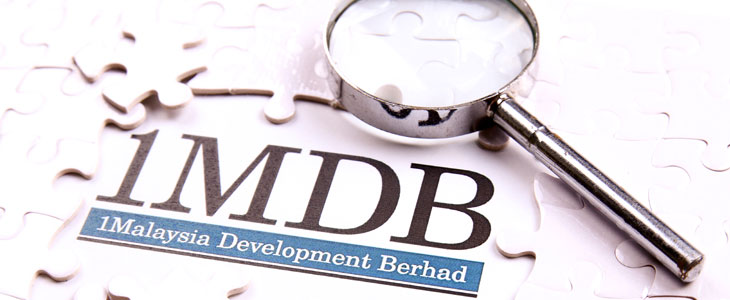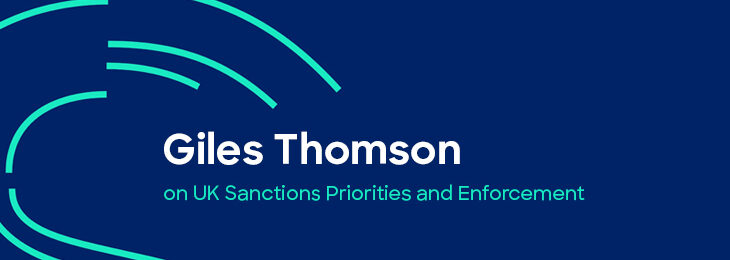
The 1Malaysia Development Berhad (1MDB) scandal is one of the largest financial swindles in the anti-financial crime (AFC) space in recent history. Initially launched to promote the management of savings belonging to the state through investments in shares, bonds or real estate, the sovereign wealth fund was ultimately exploited by “[b]ankers, businessmen and senior government officials mainly from Malaysia [and the United Arab Emirates (UAE)], but some from Saudi Arabia,” according to Emerald Insight.1
Findings
According to Emerald Insight, 1MDB “was set up as a holding and investment company for the state [i.e., Malaysia] and was funded initially by a bond issue of RM5 billion (US$1.19 billion).”2 Later, it developed joint ventures with two subsidiaries, a Saudi Arabian and a UAE-based petroleum investment company. 1MDB created numerous subsidiaries and joint ventures in various countries, making it difficult to trace the flow of illicit funds between the different countries. Robert Ng, former director of Goldman Sachs, and other Goldman Sachs bankers “played a central role in arranging and underwriting”3 the issuance of bonds, charging well above the market rate.
In 2014 alone, $850 million was embezzled from a loan granted to 1MDB by a syndicate of banks. This loan was used as a cash payment to the subsidiary of a UAE-based petroleum company. More than $6.5 billion were funneled through the chain of shell companies.4
Aftereffects of this Case
The enforcement actions taken for this case highlight the missed opportunities for bankers and other stakeholders. The chairman and deputy chairman of Goldman Sachs in Southeast Asia were charged with bribing officials and giving false statements when issuing the bonds. In Singapore, bankers have been jailed for money laundering and other related offenses. The ringleader of this scandal, Ng, was convicted in the U.S. on April 8, 2022, and will remain behind bars for 10 years for his involvement in the scheme, which included paying bribes to Malaysian and UAE officials and violating his company’s internal accounting controls, among other crimes. According to Emerald Insight, “The main charge was a failure to report suspicious and risky transactions,”5 misinformation and forging documents. Fines of $22.3 million have been imposed on eight banks in Singapore for not doing due diligence while investigating the source of funds and purpose of the transactions. Banks in Switzerland have been advised to improve their internal control and reporting procedures. Some key investment decisions were made without 1MDB board approval. This scandal demonstrated numerous faces of a predicate offense (i.e., corruption). Echoing U.S. Attorney Breon Peace, “With today’s verdict, a powerful message has been delivered to those who commit financial crimes motivated by greed. You will be caught, prosecuted and convicted, like Ng, and face a long prison sentence.”6
Subsequent Changes in Global Regulatory and AFC Practitioners’ Perspectives
Following the 1MDB scandal, Malaysia as well as global regulators, are now focusing on strengthening organizations’ anti-money laundering and counter-terrorist financing framework. In the U.S., the Corporate Transparency Act, which took effect January 1, 2023, is expected to assist in exposing/detecting the “true” owners of anonymous shell companies and private holding/investment companies as well as the “drivers” behind trade-based money laundering schemes and transactions. In Switzerland, the controversial Banking Secrecy Law’s Article 47, which previously criminalized the exposing of clients’ information, has been amended.
In Canada, the Corruption of Foreign Public Officials Act has been further strengthened as a result of the 1MDB scandal and the country’s own SNC-Lavalin scandal. Following the U.K.’s “Unexplained Wealth Orders” model, Canada has already started targeting “true” owners of luxury homes and vehicles. In addition, confirming the accuracy of an entity’s ownership, control and structure (including corporations and trusts) has been made mandatory.
Conclusion
Ending corruption is a moral calling as this greed-driven crime is like gangrene for societies and humanity. We have been observing an upturn in corruption and bribery scandals over the last couple of years. If we come together, we can make a huge difference, so why not start right away?
Ahsan Habib, CAMS, working in the Canadian AFC space, ahsanhabib.ca@gmail.com, ![]()
- David Seth Jones, “1MDB corruption scandal in Malaysia: a study of failings in control and accountability,” Emerald Insight, April 8, 2020, https://www.emerald.com/insight/content/doi/10.1108/PAP-11-2019-0032/full/html
- Ibid.
- Ibid.
- “Relevant issues on the 1MDB,” Universiti Teknologi Mara, https://www.coursehero.com/file/63221238/Relevant-issues-on-the-1MDBdocx/
- Ibid.
- “Relevant issues on the 1MDB,” Universiti Teknologi Mara, https://www.coursehero.com/file/63221238/Relevant-issues-on-the-1MDBdocx/











The author’s exploration of the aftermath of the 1MDB scandal, including its origins, key players, and regulatory changes in the anti-financial crime framework, is appreciated. However, a concern is raised about the culpability of the bankers who were jailed and punished, questioning whether they were willingly involved or coerced due to pressures or fear of job loss within a hierarchical financial institution. This situation underscores ethical concerns and emphasizes the crucial need for a robust ethical culture in organizations, as fear of reprisals can contribute to a culture where unethical behavior goes unreported. Addressing such issues involves regulatory measures, internal audits, and whistleblower protection laws.
I attempted to address the issue of modern slavery within the Financial Sector. However, I was surprised to find that top-tier journals focused on Anti-Financial Crime (AFC) seem hesitant to publish the work. This raises questions about the willingness of financial industry professionals to speak out against internal instances of modern slavery. Until solving the modern slavery in financial sector, instances like 1MDB come again and again.
Thanks again to the author to provide such sort of articles. Looking forward to find more.
My friend Ahsan,
Loved reading your article.
I especially underwrite your conclusion and your call to come together in the fight agains corruption.
Good to know several things are done in the aftermath of de 1MDB scandal.
Recent history shows, however, that we still have much to learn. Maybe an even bigger recent case was, ofcourse, Wirecard. Although that was more money laundering than corruption I believe. Still it shows the importance of being aware of suspicious transactions and report the STR’s.
Also the latest Corruption Perception Index shows overall a decline of resilience against corruption.
Yet another argument to be fully aware of this treath, as you also concluded.
Keep up the good work!
Kind regards,
Pieter-Jan Dessing